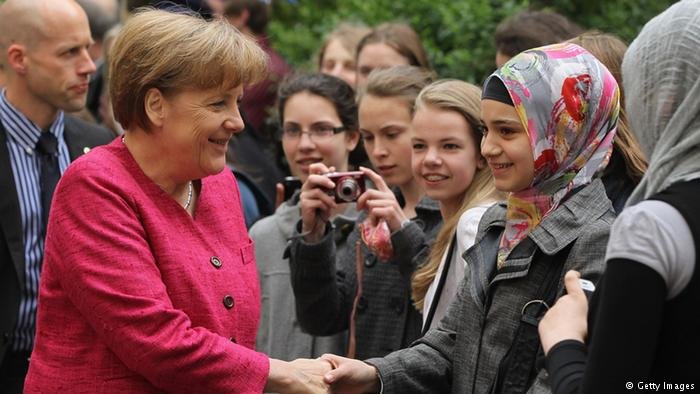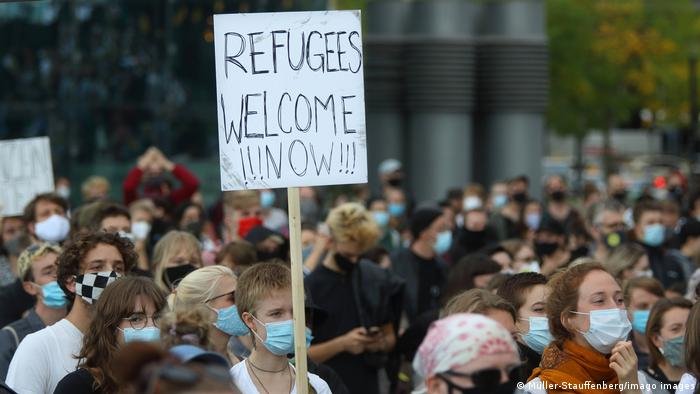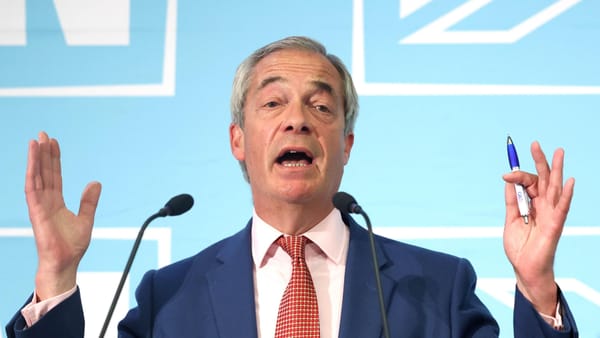Former German Chancellor Angela Merkel has once again voiced strong criticism of Chancellor Friedrich Merz’s migration policies, warning that they pose a significant threat to the European Union’s core principle of freedom of movement. Speaking at an event on May 22, 2025, Merkel emphasized the need for cohesive European solutions to migration challenges, cautioning that Merz’s approach could “see Europe being ruined.” This marks the second time this year that Merkel, a prominent figure in the Christian Democratic Union (CDU), has publicly clashed with Merz, her party colleague and successor, highlighting deep ideological divides within Germany’s center-right and raising critical questions about the future of EU migration policy.
This article delves into the nuances of Merkel’s critique, examines Merz’s migration policies, explores the broader context of European migration challenges, and analyzes the political, legal, and social implications of Germany’s evolving stance on migration. Through a detailed examination of historical precedents, current data, and expert opinions, we uncover the hidden complexities and potential consequences of this high-stakes debate.
Background: Merkel vs. Merz – A Fractured Relationship
The tension between Angela Merkel and Friedrich Merz is not new. Their rivalry dates back to the early 2000s when Merz, then a rising star in the CDU, lost a power struggle to Merkel, who steered the party toward a more centrist platform. Disheartened, Merz retreated to the private sector, only returning to politics after Merkel stepped down as CDU leader in 2018. Since then, Merz has positioned himself as a conservative counterpoint to Merkel’s legacy, particularly on migration.
Merkel’s tenure as chancellor (2005–2021) was defined by her handling of the 2015 European migrant crisis, during which she famously declared, “Wir schaffen das” (“We can do this”), welcoming over a million refugees, primarily from Syria. This decision, while praised by humanitarians, sparked significant backlash within Germany and across Europe, fueling the rise of far-right movements like Alternative für Deutschland (AfD). Merz, who returned to the political forefront as CDU leader and later chancellor, has consistently criticized Merkel’s 2015 policy, arguing it exacerbated illegal migration and strained Germany’s social fabric.
“I don’t believe that we can combat illegal migration at the German-Austrian or German-Polish border,” Merkel said, emphasizing her long-standing advocacy for European-level solutions.
Merkel’s latest remarks, delivered at a public event in Berlin, underscore her belief that unilateral border policies, such as those introduced by Merz, undermine the EU’s cohesion. Her warning that Europe could be “ruined” reflects a deep concern about the erosion of the Schengen Agreement, which guarantees free movement within most EU countries.
The Merz Migration Policy: A Shift to the Right
Friedrich Merz’s migration policy represents a significant departure from Merkel’s approach. Campaigning for the February 23, 2025, snap election, Merz promised immediate action on migration, vowing to implement stricter border controls on his “first day” in office. True to his word, within 24 hours of being sworn in, Interior Minister Alexander Dobrindt announced measures to reject more migrants, including asylum-seekers, at Germany’s borders. These controls target not only external EU borders but also internal borders, such as those with Austria and Poland, raising concerns about their compatibility with EU law.
Details of the New Policy
The policy includes increased border patrols, expedited deportation processes, and stricter criteria for asylum approvals. According to the German Interior Ministry, the measures aim to curb “illegal migration” by deterring migrants from entering Germany and expediting the return of those deemed ineligible for asylum. In 2024, Germany processed approximately 300,000 asylum applications, with a significant portion originating from conflict zones in the Middle East and Africa. The new policy seeks to reduce this number by prioritizing rapid rejections at border points.
Legal scholars, however, argue that these measures violate the EU’s Dublin Regulation, which stipulates that asylum applications should be processed in the first EU country of entry. By rejecting asylum-seekers at internal borders, Germany risks undermining the principle of shared responsibility among EU member states. Neighboring countries, including Austria and Poland, have expressed frustration, accusing Germany of “exporting” its migration challenges to them.
Political Context: A Rightward Shift
Merz’s policies reflect a broader rightward shift in German politics, driven by rising public discontent over migration. Polls conducted by the German Institute for Public Opinion Research (Forsa) in early 2025 showed that 62% of Germans supported stricter border controls, a sentiment fueled by economic pressures, housing shortages, and cultural anxieties. The AfD, which has capitalized on these concerns, secured 18% of the vote in the 2025 election, making it a significant force in parliament. Merz’s reliance on far-right votes to pass an anti-immigration motion in the lead-up to the election drew sharp criticism from Merkel, who warned against aligning with extremist elements.
This political maneuver highlights a delicate balancing act for Merz. While appealing to conservative voters, he risks alienating moderate CDU supporters and straining relations with EU partners. Merkel’s critique underscores this tension, framing Merz’s policies as shortsighted and potentially destabilizing for the EU.
Merkel’s Vision: European Solutions Over National Isolation
Merkel’s advocacy for “European solutions” is rooted in her experience navigating the 2015 migrant crisis. During that period, she pushed for EU-wide quotas to distribute refugees among member states, a proposal that met resistance from countries like Hungary and Poland. Despite its partial failure, Merkel remains committed to a multilateral approach, emphasizing the protection of external EU borders over internal border controls.
The Schengen Agreement at Risk
The Schengen Area, encompassing 29 countries and allowing passport-free travel for over 400 million people, is a cornerstone of European integration. Merkel’s warning that Merz’s policies could “cost us the freedom of movement” points to the risk of reintroducing permanent border checks within the EU. Such measures, she argues, could unravel decades of progress toward a borderless Europe.
Data from the European Border and Coast Guard Agency (Frontex) shows that irregular border crossings into the EU dropped from 1.8 million in 2015 to approximately 250,000 in 2024, thanks to stronger external border controls and agreements with countries like Turkey. Merkel’s argument is that investing in Frontex and external border security is more effective than unilateral actions that strain intra-EU relations.
“I’m arguing for European solutions, because otherwise we could see Europe being ruined, and I don’t want that,” Merkel stated, urging the new government to prioritize EU unity.
Challenges of European Cooperation
While Merkel’s vision is compelling, it faces significant hurdles. EU member states have long disagreed on migration policy, with southern countries like Italy and Greece bearing the brunt of arrivals and northern countries like Germany facing secondary migration. The Dublin Regulation, intended to streamline asylum processing, has been criticized for placing disproportionate pressure on border states. Efforts to reform the system, such as the EU’s New Pact on Migration and Asylum (adopted in 2024), have made progress but remain contentious.
Research by the Migration Policy Institute highlights that effective EU-wide migration management requires not only stronger border controls but also harmonized asylum policies, integration programs, and cooperation with countries of origin and transit. Merkel’s call for patience—“it takes forever and a very long time”—acknowledges the complexity of achieving consensus among 27 member states with divergent priorities.
Hidden Truths: The Broader Implications of Merz’s Policy
Beyond the immediate legal and political debates, Merz’s migration policy raises deeper questions about Germany’s role in Europe and the future of the EU. By prioritizing national border controls, Germany risks setting a precedent for other member states to follow, potentially leading to a domino effect of border closures. This could exacerbate tensions in an already fragile EU, still grappling with post-Brexit challenges and the war in Ukraine.
Economic and Social Impacts
Migration is not just a political issue but an economic and social one. Germany’s aging population and labor shortages make immigration a necessity, with studies from the German Economic Institute (IW) estimating that the country needs 400,000 skilled immigrants annually to sustain its workforce. Merz’s restrictive policies could deter not only asylum-seekers but also economic migrants, potentially harming industries like healthcare and technology.
Socially, the policy risks deepening divisions. Anti-immigrant sentiment, while significant, coexists with strong support for integration programs. A 2024 survey by the Bertelsmann Foundation found that 55% of Germans believe immigrants contribute positively to society when provided with language and job training. By focusing on rejection rather than integration, Merz’s approach may fuel polarization and empower far-right narratives.
Humanitarian Concerns
Human rights organizations, including Amnesty International, have condemned Merz’s policy for its potential to violate international asylum law. The 1951 Refugee Convention, to which Germany is a signatory, guarantees the right to seek asylum. Rejecting asylum-seekers at borders without proper processing risks refoulement, the return of refugees to countries where they face persecution. This concern is particularly acute given ongoing conflicts in regions like Syria and Sudan, which continue to drive displacement.
Merkel’s 2015 decision, while controversial, was grounded in humanitarian principles. Her critique of Merz suggests a belief that Germany’s moral leadership in Europe is at stake. “I hope that the new federal government doesn’t want that either,” she said, implying a shared responsibility to uphold EU values.
Expert Opinions and Research Insights
Experts are divided on the efficacy of Merz’s approach. Dr. Anna Schmidt, a migration scholar at the University of Hamburg, argues that internal border controls are a “band-aid solution” that fails to address root causes like conflict and poverty in migrants’ home countries. She advocates for increased EU funding for development aid and conflict resolution, citing studies showing that economic stability reduces migration flows.
Conversely, Dr. Hans Mueller, a policy analyst at the Center for European Policy Studies, supports stricter controls, arguing that public support for migration hinges on visible enforcement. He points to Denmark’s tough migration policies, which have reduced asylum applications while maintaining economic immigration, as a potential model for Germany.
Research from the European Council on Foreign Relations (ECFR) underscores the need for a balanced approach. A 2024 ECFR report warns that populist anti-immigration policies, while politically expedient, risk long-term economic and diplomatic costs. The report advocates for a “pragmatic humanitarianism” that combines robust border security with integration and legal migration pathways.
The Path Forward: Can Europe Find Common Ground?
The Merkel-Merz divide encapsulates a broader European dilemma: how to balance security, sovereignty, and solidarity. Merkel’s vision of a united Europe tackling migration collectively is appealing but challenging to implement. Merz’s focus on national control resonates with voters but risks fracturing the EU. Finding a middle ground will require compromise and innovation.
Potential Solutions
Several strategies could bridge the gap:
Strengthening External Borders: Investing in Frontex and partnerships with non-EU countries, like the 2016 EU-Turkey deal, could reduce irregular arrivals while preserving Schengen.
Reforming the Dublin System: A revised asylum framework that equitably distributes responsibility among member states could alleviate pressure on border countries.
Integration Programs: Expanding language, education, and job training for migrants could address public concerns about social cohesion while meeting economic needs.
Global Cooperation: Addressing root causes through development aid and peacekeeping efforts could reduce migration pressures over time.
The Role of Leadership
Leadership will be critical in navigating this crisis. Merkel’s experience and moral authority make her a powerful voice, but her influence is waning as a new generation of leaders, including Merz, takes the helm. Whether Merz can reconcile his domestic priorities with EU obligations remains to be seen. His willingness to engage with far-right elements suggests a pragmatic but risky approach, one that Merkel clearly views with skepticism.
Conclusion: A Defining Moment for Europe
Angela Merkel’s critique of Friedrich Merz’s migration policy is more than a personal or party dispute; it is a warning about the future of Europe. By prioritizing national border controls, Merz risks undermining the EU’s unity and Germany’s role as a stabilizing force. Merkel’s call for European solutions, while idealistic, reflects a deep understanding of the interconnectedness of EU member states.
As Germany and Europe grapple with migration, the stakes could not be higher. The choices made in the coming years will shape not only the EU’s border policies but also its identity as a union of shared values. Merkel’s voice, though no longer in power, serves as a reminder of the delicate balance between national interests and European solidarity. Whether Merz heeds her warning or charts his own course will determine whether Europe rises to the challenge or risks being “ruined.”



















0 Comments